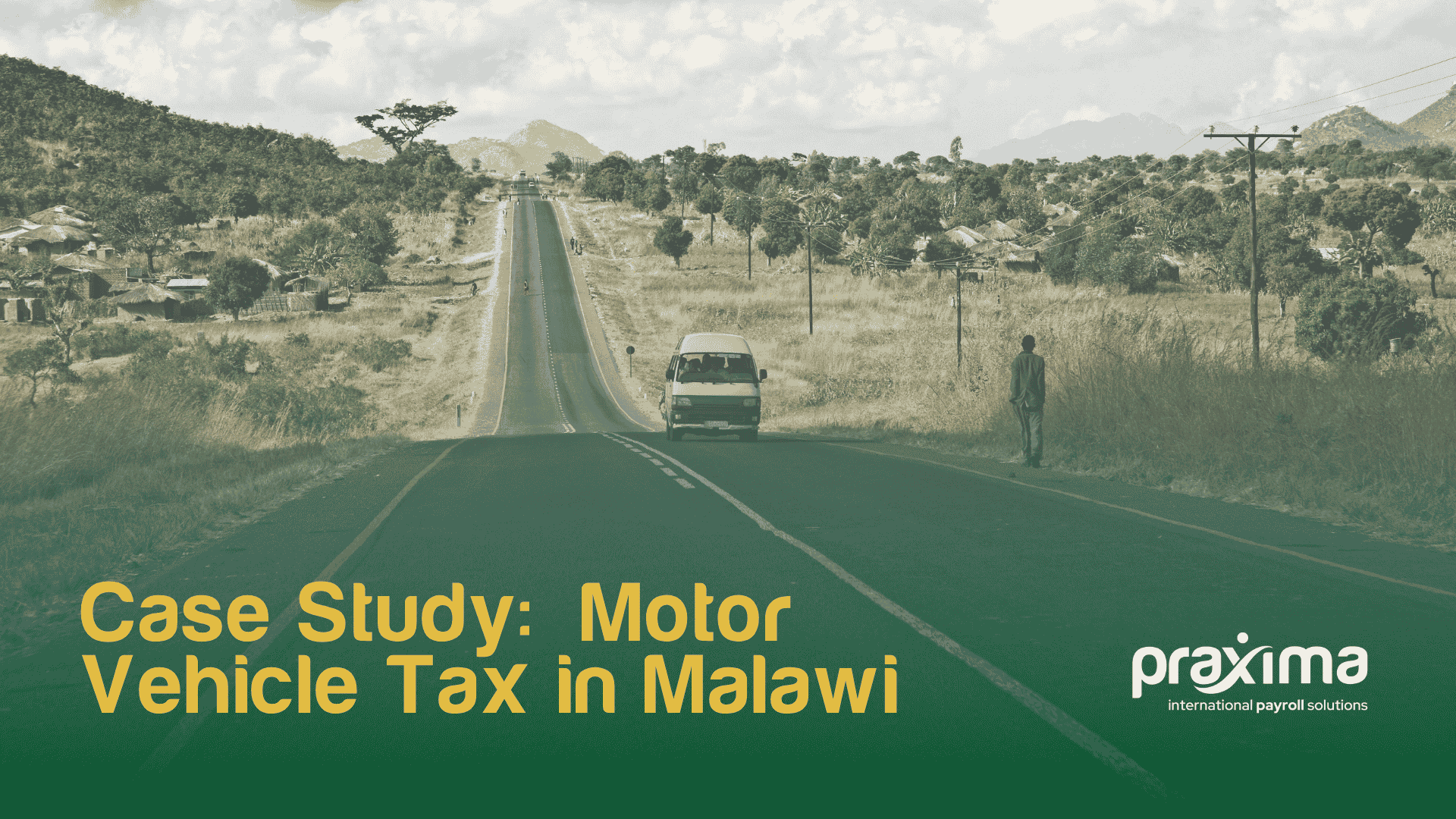
When providing company vehicles to employees in Malawi, employers must correctly classify and calculate the associated tax obligations. Recently, a Praxima client reached out for guidance on how vehicle use should be treated for payroll and tax purposes. The answer lies in understanding Malawi’s approach to fringe benefit taxation.
In Malawi, a company vehicle is not treated as part of the employee’s salary for PAYE purposes. Instead, it is classified as a fringe benefit, and this shifts the tax liability entirely onto the employer.
Key Takeaway: In Malawi, company vehicles are fringe benefits taxed at the employer level, not through the employee’s PAYE.Speak to a Specialist
Under Malawian tax law, the provision of a company vehicle is considered a taxable fringe benefit. This means:
This ensures that fringe benefits are taxed fairly, without increasing the employee’s PAYE burden.
Section 94D of the Taxation Act makes the employer’s responsibility clear:
“Nothing in this Act shall be construed to impose liability for fringe benefits tax on an employee in respect of which his employer is liable.”
The employee’s tax position remains unaffected. They are not taxed for receiving the company vehicle. Instead, the employer must calculate and settle the fringe benefit tax due.
By reviewing the law and applying Malawi’s FBT rules, Praxima was able to advise the client on correct calculation, compliance, and reporting. This ensures aligned tax treatment and protects both employer and employee from future disputes or assessments.
If this article raised questions or highlighted areas you’d like to understand better, let’s talk.Our team can walk through the details, implications, and practical considerations for your business.